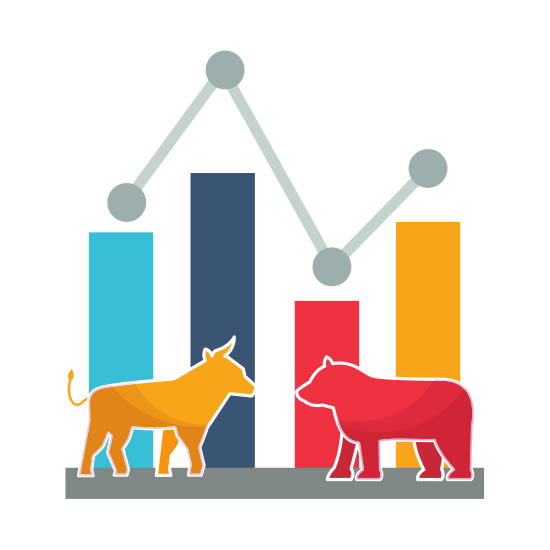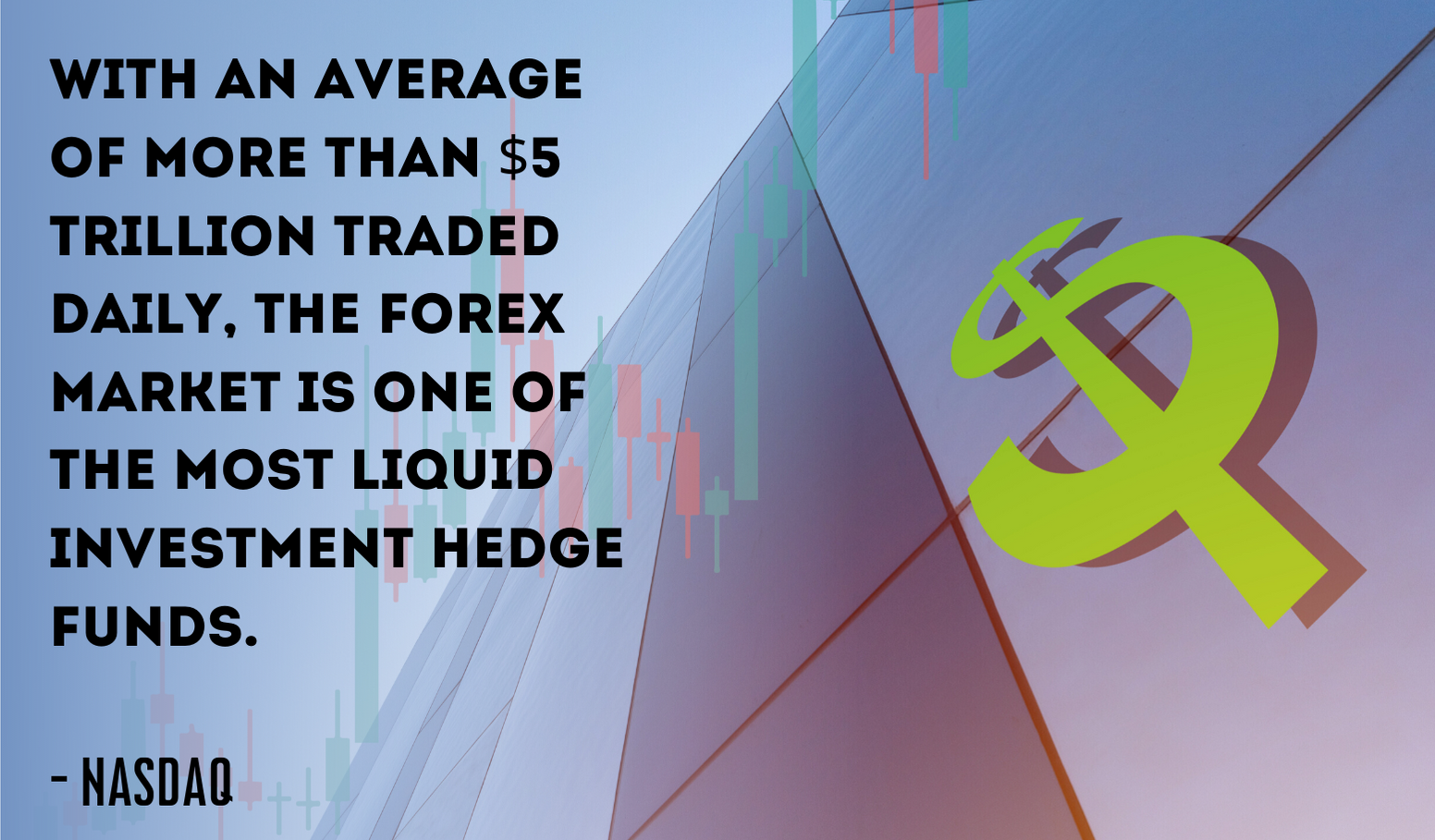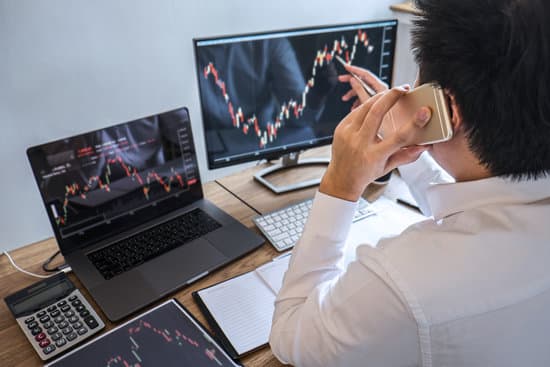If you’ve ever been out of the country, chances are you’d be carrying cash with that country’s currency. Say you arrived from the U.S. for a short business trip to Singapore. Upon arriving at the airport, you immediately go to a foreign exchange booth and change your U.S. dollars to Singaporean dollars. When you trade your currency for another currency, it is called foreign exchange currency or Forex.

On a global scale, Forex or currency trading uses a decentralized platform where global currencies are being traded daily. With an average of more than $5 trillion traded daily, the Forex market is one of the most liquid investments for hedge fund managers, and retailers look into it to diversify their portfolios.
Retailers looking to trade in this market should not treat this like ‘any regular investment.’ Treat it like a real business. Forex trading also requires constant attention and studying, so be ready to get your thinking caps on and become a “student for life.”
Explore Forex Trading for Home Investors using these page jumps:
The Animals in Us
Purpose of Forex Trading
Forex Trading Risks
Pros and Cons of Forex Trading
Qualities of A Legitimate Forex Broker?
Why Do Some Forex Traders Lose?

The Animals in Us

The market is 90% behavior and 10% system. It is primarily run by two emotions: greed and fear. Without a system in place, emotions can run high (and low), causing you to lose money. And since this is a zero-sum game, Forex trading is not for the faint of heart and nervous wrecks.
To simplify this, here are some ‘farm animals’ common on any trading floor:
The Bulls
As represented by horns thrusting upwards upon entering the arena or battle (hence the term ‘bull-run’), bulls represent investors who are optimistic and believe that the economy just keeps getting better and better.
The Bears
Bears, with their swipe-down action, represent pessimism. Let’s just say this is the ‘anti-bull’ mentality where traders and investors cultivate a negative sentiment about a particular currency pair or market. These investors prefer to do more shorting than long trades.
The Chicken
This animal represents the good size of the trading group. Chickens usually have difficulty trading large amounts because of their fear of losing money. Chickens don’t usually earn a decent amount of profit from trading and usually avoid it altogether because it’s looking for a ‘right time’ to enter the trades.
The Sheep
Sheep usually trade where the crowd is trading. These are the investors who follow a trading guru. And just like sheep, they don’t have time to think, so they follow who the crowd says they need to follow. It’s a sure thing to find sheep the last one during an uptrend and the last one to exit during a downtrend.
The Pig
Pigs represent investors who have the money and trade more frequently. They have grandiose trading goals with the most significant gain, the longest trading time, and the most prominent position size. Pigs don’t have a system in place and usually at a loss when to exit from a winning position.
These metaphorical animals represent the behaviors most traders exhibit when they enter a trade. It’s good to note that a sound system in place, along with discipline, will help any trader gain traction in Forex trading. And as they say, “Bulls make money, bears make money, and pigs get slaughtered.” Know your trades and trade what you know.

Purpose of Forex Trading
Companies who are doing offshore businesses are highly exposed to currency fluctuations when they buy or sell products outside their local market. With Forex, businesses can hedge their risks using a fixed rate in which a particular transaction is completed.

For advanced traders, the futures and swap markets are likely places to go for trading currencies. However, this type of trading requires advanced knowledge of global economies and trading techniques.
The other reason is for speculation. Currencies are affected by tourism, geopolitical landscape, economic growth, trade flows, and interest rates. There’s an opportunity to profit from the growth and devaluation of a particular currency compared to another currency. When a currency weakens, there’s a high possibility that the other currency pair will grow in value as Forex is traded by twos.
Take, for example, Home Investor A, who is interested in trading the USD/AUD pair. He expects the U.S to spike up interest rates compared to the Australian exchange rate. The current exchange rate between the two currencies is 0.71 is to 1. Meaning, it takes 0.71 USD for every 1 AUD. Home Investor A speculates that the interest rate in the U.S. will increase, hence a higher demand for USD. This is translated to lower USD/AUD demand because of fewer USD to purchase AUD.
Supposing that Home Investor A is correct, the higher interest rate takes a toll on the exchange wherein only 0.50 USD is required to purchase 1 AUD. In this case, a wise investor would look to go long on USD and short on AUD to profit from this exchange.

Forex Trading Risks
Every investment carries a specific type (or types) of risks. Forex trading platforms are generally unregulated and volatile, so expect to encounter these common risks.
Exchange rate risk
Change in the currency’s value is frequent with Forex trading. In the global market, currencies change values all the time to meet the demand and supply. While you may have the upper hand of your trades, any shift in the economic platform can change the value of the currencies you hold. Moreover, Forex trading is mostly unregulated (more on this later), will have no price limits imposed, rely on fundamental (e.g., economic outlook, political sentiments, etc.), and technical details.
To minimize this risk, home investors need to limit their positions and losses. Keeping a 1:3 or 1:5 risk to reward ratio should provide a cushion against any exchange rate risks.
Sovereign Risk
This is the kind of risk wherein a foreign nation fails to meet any initial or principal payments. Consider the case of Argentina’s worsening recession amidst the COVID-19 pandemic. This country is also third to Ecuador and Zambia as one of the “highest sovereign risks of non-repayment.” Retail traders should not speculate trading any currencies with Argentina despite its rich economic landscape.
Inconsistent Forex Trading Platform Regulations
Retail home investors usually have small investments dedicated to Forex trading. While rogue traders cannot influence such a massive trading flow, small investors may tend to be placed with brokers or dealers, which can re-quote currencies and trade against their customers.
Depending on where your chosen broker is located, there’s a high tendency that regulations imposed in one country are different from another. It’s best to check the background and location of the broker you’ve chosen and check if they offer protective cushions for their customers against any market crisis or insolvency.

Pros and Cons of Forex Trading

Home investors trading in the Forex market are tapping into one of the largest pools of investments with its high daily trading volume. When a lot of trade goes around, it’s easy for traders to enter and exit. Entering and exiting a position would be easier, especially in trading the major currencies, even with just a small spread.
There will be some instances where brokers and dealers allow leverage for small investors to take on more significant positions with little capital on their own. It is also not uncommon for home investors to get a 100:1 leverage ratio. However, with significant capital come higher risks. In some instances, brokers who give high leverage to investors could end up being insolvent in the long run.
Unlike trading stocks, Forex markets are open 24 hours every day for the whole weekday duration. It will start with Australia and end with New York. The challenge lies in its fundamentals from global economics to micro-economics. Reading and understanding global indicator data would require some expertise and knowledge, but all are valuable information to help you make intelligent trades. “If America sneezes, the world catches a cold,” says an adage. Home investors should be wary of whiplash reactions from these events!
In conducting fundamental analysis of a specific country, note important local public announcements of their economic data to keep you afloat of your trades.

Qualities of A Legitimate Forex Broker?
In the light of a global pandemic, there are various scammers on the prowl for helpless investors looking for a ‘safe haven’ for their investments. As is the case with Jason Amanda, home investors should be keen to investigate and research the company platform for accuracy of data, legitimacy, and customer protection.
Security
Since all your trades and transactions will be made online, security should be your foremost concern. U.S and U.K platforms are more favorable for small investors because they’re likely to follow regulated Forex trading practices and platforms.
The U.S Forex market is regulated by the National Futures Association (NFA) and the Commodity Futures Trading Commission (CFTC). The Prudential Regulation Authority (PRA) and The Financial Conduct Authority (FCA), on the other hand, regulate the U.K Forex market. A legitimate broker should be accredited by any of these organizations!
Quality Customer Service
Brokers, particularly smaller ones, are not without any problems. However, excellent customer service would help you significantly to make your trading as smooth as possible. The way you can tell if you’ve chosen a good broker is how they fix your accounts and handle any technical glitches you might encounter. It’s usually the ‘after-sales’ support that nails the deal for you.
Transaction Costs
Just like any trading medium, transaction costs will always vary from one platform to another. You see, every time you place a single trade, expect to pay on spread or commission on the broker. Your goal is to find the cheapest rates being offered on the market. But to get a reliable broker, you may need to sacrifice a low transaction cost for premium services.
Proper Trade Execution
Your broker should be able to fill in your orders with the best price possible. This is particularly true for experienced traders such as scalpers. Provided that there are no news releases with normal market liquidity, your brokers should be able to fill in the closest market price possible whenever you “buy” or “sell.” As you progress and update your trading systems, you could go for other quick trading methods. Your broker must fill in the closest price possible so you can profit from your trades.
Seamless Transaction
Whenever you deposit or withdraw money from your account, it should be hassle-free. All reliable brokers do this efficiently to make your trading as comfortable as possible.
Reliable Trading Platform
Forex platforms should be transparent and in line with the global market valuation. It’s also vital that your broker makes it easy to buy and sell currencies within the click of a button. All crucial indicators, such as technical and charting tools, should be accessible. Newsfeed of the latest global market trends, especially emerging markets, should be immediately accessible as well.

If Forex Trading is so profitable, why do some investors lose money from it?
Forex trading isn’t for the faint of heart. As mentioned, discipline and emotions come to play when it comes to trading this type of asset. Here are common ‘pitfalls’ home investors often fall into once they enter the game.

Purchasing a Trading System
There’s probably a chance (or two) where you encountered gurus sitting in a lavish Mercedes Benz enticing you to purchase a ‘no-hassle, profit-guaranteed trading platform’ that does all the trading for you. There is some partial truth to it—but just like any investment opportunity, always approach with a caveat.
There is a recent surge in algorithmic trading due to lockdowns and other difficulties that make independent trading challenging from home. But not all systems are created equally.
Unlike traditional trading, other qualitative data such as political risks may be missed by algorithmic trading. Furthermore, investors are exposed to higher risks involving currency losses during execution. This type of risk can easily be offloaded to banks if you trade using traditional transactions. Algorithmic trading may also go against inexperienced traders working their way into a volatile market.
Beating the Market
This is a myth. The market, especially the Forex trading market, is particularly volatile and cannot be “tamed.” When you trade currencies, expect wild rides and bumpy roads. The trend will never be defined, hence the necessity to manage your risk.
It’s also unrealistic for home investors with very little capital to gain high profits from it. Either way, going at it too ‘scared’ or too ‘aggressive’ may prove to be fatal for your portfolio.
Not Accepting When To Give Up A Trade
As some might call a revenge trade, some traders latch on to a losing trade until they make a profit from it.
Own the fact that not all trades are profitable! It is estimated that roughly 37% of trades are winning or profitable. For inexperienced traders, you will likely get caught up with your emotions as the trend goes higher. And just to ride a good “trend,” you got in the trade with hopes of high profits. However, without a system, such as cut-loss limits and risk-to-reward ratios, there’s no telling when to give up a losing trade or when to take profit from a winning trade.
To move forward, avoid this kind of thinking, assess what you did right (or wrong), and look for other opportunities.
Low Starting Capital
Forex trading is sometimes portrayed as a “golden ticket to make easy money.” It’s not unlikely for marketers to entice you to take upon higher leverage and bigger position sizes to yield a high return for your capital.
Unless you’re a whale, working on small capital for high returns on a short run is like wishing for pigs to fly. With a small investment and high leverage, your risk is higher, and this adds to the emotional swings you experience as the market goes up and down at whim. Jumping in and out of a trade without any system in place will burn all your capital in minutes.
Don’t trade on a shoestring. While most trading platforms offer a $100 to $200 initial capital, the safest amount would be $1000 to get better traction when you go into trades.
Picking the Peaks and Troughs
Finding turning points on a trend is trickier than it looks. Some new traders add to their position even if the trade is heading in the opposite direction. They hope to profit from a trend reversal. Again, without a system in place, it will be hard for you to figure when to enter and exit a trade and can devastatingly lead to negative cash flow.
To trade profitably, you need to follow a trend. And when all your indicators tell you that the trend is reversing, it’s best to lighten your position (or add to it if it’s a favorable trend).

In bottom picking, you only enter a trade only when the reversal happens from the bottom of an uptrend (not a bottom of a downtrend). If you’re planning to position from the top, make sure that the trend is not just a correction but a move to break the ceiling of the trend.
Not Adding Risk Management to the System
A profitable system will include fundamental and technical analysis. Technical traders primarily dominate the Forex market since its volatile and will require close trading calls to make profitable gains. But if you’re a home investor who’s new in the trading arena, it’s always essential to have risk management systems in place.
As you know, the market is not always going to go up. There will be black swan events, such as the Asian Financial Crisis, which created a whiplash in the global markets. Facing a global pandemic with no cure in sight could also prove to be disastrous for a rookie trader just getting his feet wet.
It’s crucial always to protect your capital when you’re investing in the market. If you have $1000 in your portfolio, do the best of your abilities to keep the capital and still make profitable trades. Remember that without your capital, there’s a higher possibility of insolvency. Time is crucial in trading the market, so you must be liquid to take advantage of ‘windows of opportunity’ the market presents.
If you can’t keep up with a trade, it’s best to place in stop-loss orders to avoid higher risks if the trend is not moving in your favor. Lot sizes you place in pair should be within a reasonable amount. And lastly, if the trade doesn’t make sense, stop trading, go for a walk, or take a vacation. It’s normal to burn-out after some time of trading, so take some time off.
Giving in to Fear and Greed
As mentioned prior, the market is predominantly traded based on emotions. Greed and fear play a significant part in the tug-and-pull of these trends. Emotions can run high and low, which could hurt your portfolio if you’re not careful.
Timing is everything with Forex trading. As a rookie, having a system in place will help you master your emotions and evaluate your currency picks based on unbiased and objective data. Always consider going for a reasonable profit taking (5% to 15% per month is a good start).
Never chase any trends triggering emotions. Consult your trading guidelines and stick to the plan.


Forex trading is not for everyone, mainly if you have limited funds. But if you’re considering making a living off trading the Forex market, swing trading and day trading may be good options in the long run. Continue to keep learning about the global markets and use the charting tools to guide your cut-loss limits. When you have a guide in place, your trading journey will surely be more enriching and profitable in the long run.